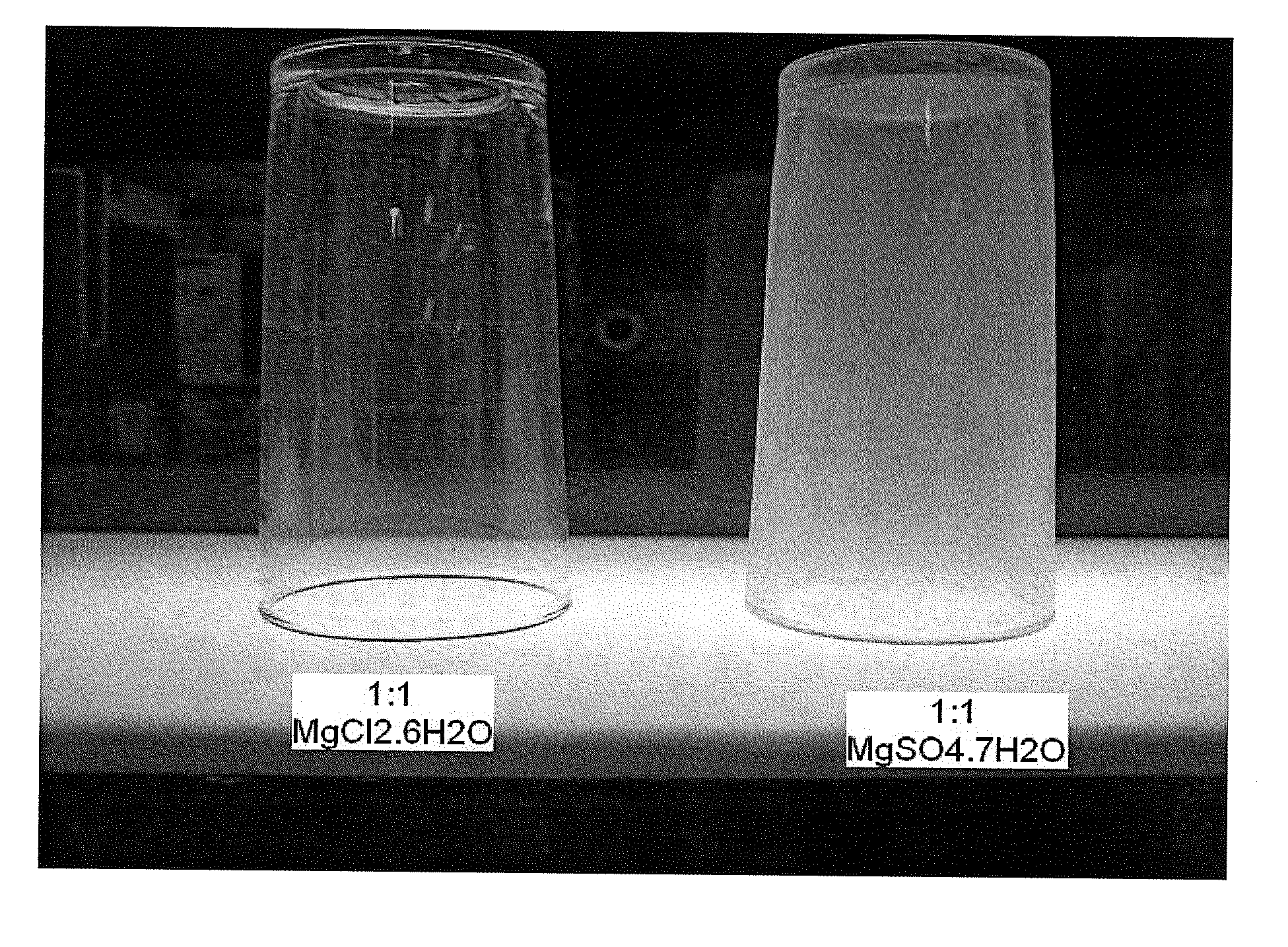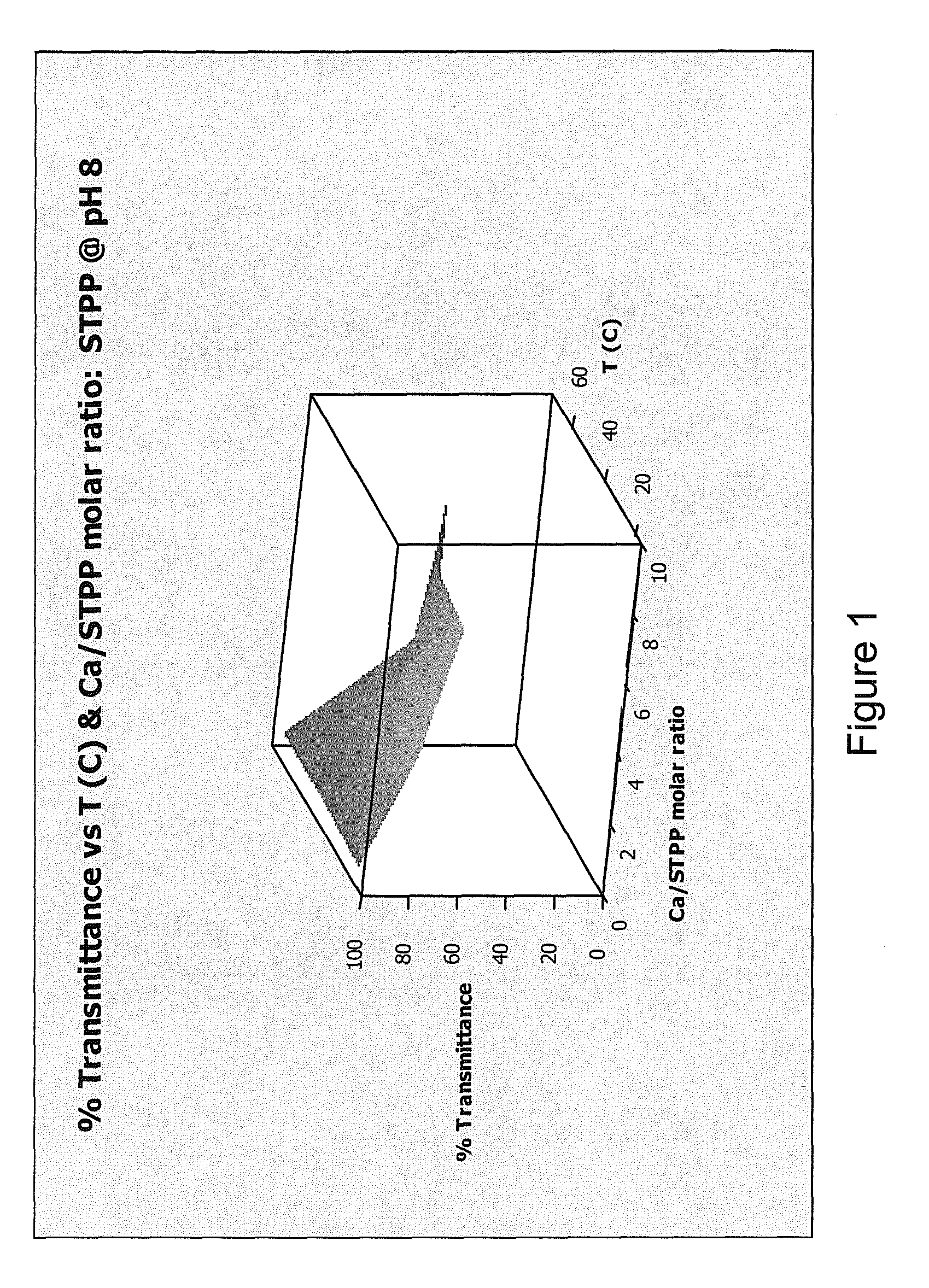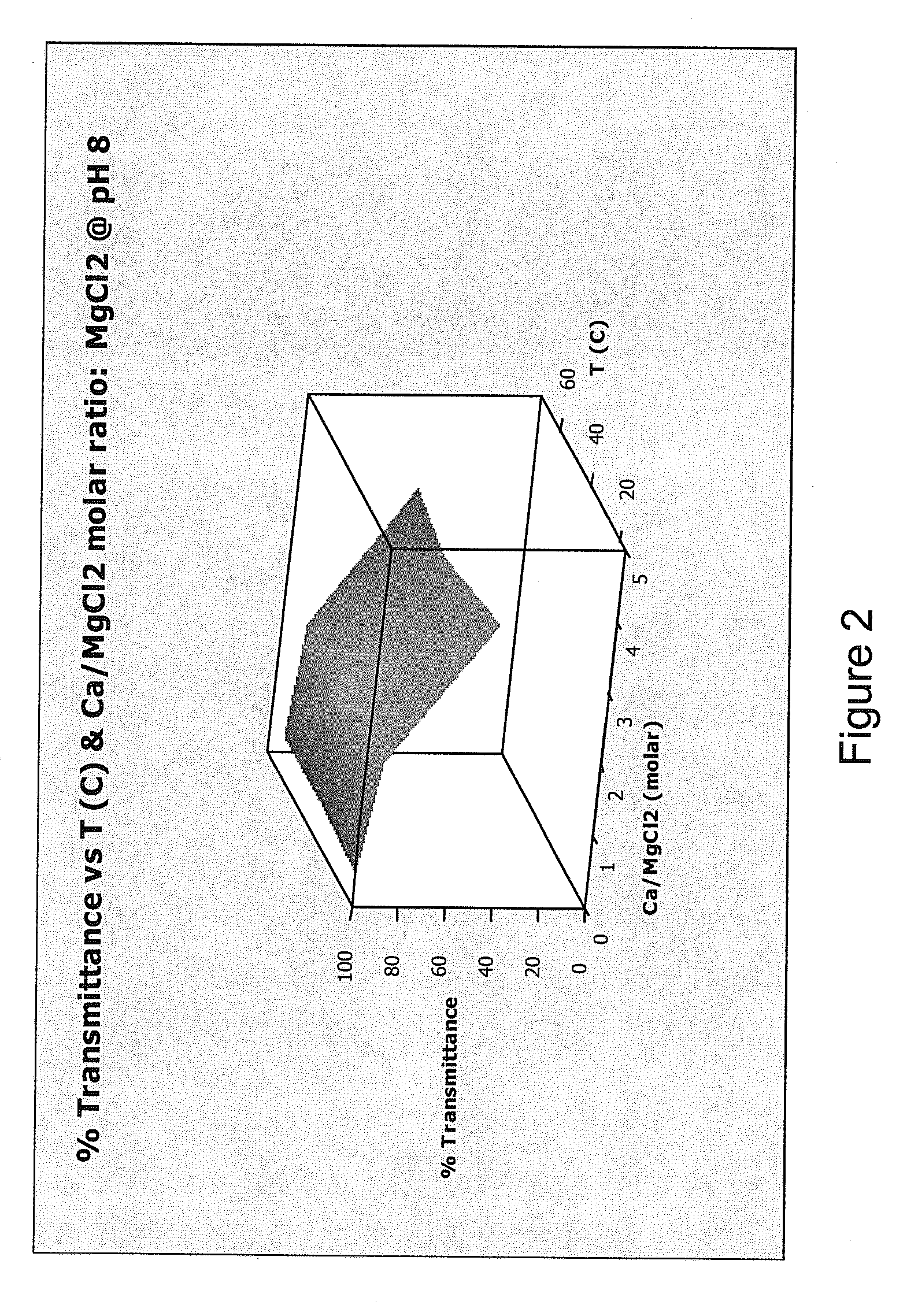Cleaning compositions containing water soluble magnesium compounds and methods of using them
a technology of water soluble magnesium and composition, applied in the direction of detergent compounding agent, cleaning using liquids, inorganic non-surface active detergent composition, etc., can solve the problems of affecting the cleaning effect of the system, so as to reduce the amount of ash in the laundry or the laundry. , the effect of reducing the amount of ash
- Summary
- Abstract
- Description
- Claims
- Application Information
AI Technical Summary
Benefits of technology
Problems solved by technology
Method used
Image
Examples
example 1
Water Soluble Magnesium Compounds Reduce Precipitation of Calcium Salts from Hard Water
[0234]This Example demonstrates that adding a hardness ion (Mg2+) to water worked as well as a conventional chelating agent or sequestrant (sodium tripolyphosphate (STPP)) at preventing precipitation of calcium salts.
[0235]Formation of a precipitate in water reduces the transmission of visible light through the water. A transmittance of 100% indicates that no precipitate formed, while a transmittance of 0% indicates that so much precipitate formed that light no longer passed through the sample. Transmittance was measured for water containing either MgCl2 (present invention) or STPP (comparative example) at pH values of about 8, about 10, and about 12, and at temperatures of about 20° C., about 45° C., and about 70° C. Temperatures were chosen in an attempt to reflect room temperature (20° C.), general laundry temperature (45° C.) and general automatic warewashing temperature (70° C.). The results ...
example 2
Soluble Magnesium Salt Including Anion of Soluble Calcium Salt Reduced Formation of Scale from Hard Water in Warewashing at Lower Ratios
[0270]Surprisingly, a water soluble magnesium salt (MgCl2) providing an anion that forms a water soluble calcium salt reduced formation of lime scale from hard water at lower ratios of Mg2+ to Ca2+ than a magnesium salt (MgSO4) providing an anion of a water insoluble calcium salt.
[0271]A first glass and a second glass were run though a dishwashing machine for 100 cycles using 17 grain hard water in a dishwashing machine with water soluble magnesium compound, magnesium chloride or magnesium sulfate, introduced as the sole rinse agent. The water soluble magnesium compounds were introduced at molar ratios of magnesium ion to calcium ion of 1:1. No detergent was used in any of the wash cycles.
[0272]The results in FIG. 13 compare glasses rinsed with two sources of water soluble magnesium compound as the source of the added magnesium ion. Magnesium chlori...
example 3
Cleaning Composition Containing Water Soluble Magnesium Salt Removed Protein Soil in Warewashing
[0276]Surprisingly, adding a hardness ion (Mg2+) to a phosphorus-free ware washing composition resulted in equal or better cleaning performance compared to a conventional, magnesium salt free, phosphorus containing warewash detergent.
[0277]A first glass (H) was soiled with milk and washed with 1000 ppm of Formula A at 160° F. in 17 gpg hard water. A second glass (I) was soiled with milk and washed with 1000 ppm of a comparable, conventional warewash detergent at 160° F. in 17 grain hard water. The soiling and wash sequence was repeated 10 times for each glass.
[0278]The glasses were then treated with Comassie Blue dye, which stains protein blue. The intensity of blue color on the treated glasses was directly proportional to the level of protein (i.e., milk) remaining on the surface. The glasses were filled with a white powder (to provide greater contrast for the blue color), visually inspe...
PUM
| Property | Measurement | Unit |
|---|---|---|
| temperature | aaaaa | aaaaa |
| temperatures | aaaaa | aaaaa |
| temperatures | aaaaa | aaaaa |
Abstract
Description
Claims
Application Information
 Login to View More
Login to View More - R&D
- Intellectual Property
- Life Sciences
- Materials
- Tech Scout
- Unparalleled Data Quality
- Higher Quality Content
- 60% Fewer Hallucinations
Browse by: Latest US Patents, China's latest patents, Technical Efficacy Thesaurus, Application Domain, Technology Topic, Popular Technical Reports.
© 2025 PatSnap. All rights reserved.Legal|Privacy policy|Modern Slavery Act Transparency Statement|Sitemap|About US| Contact US: help@patsnap.com



